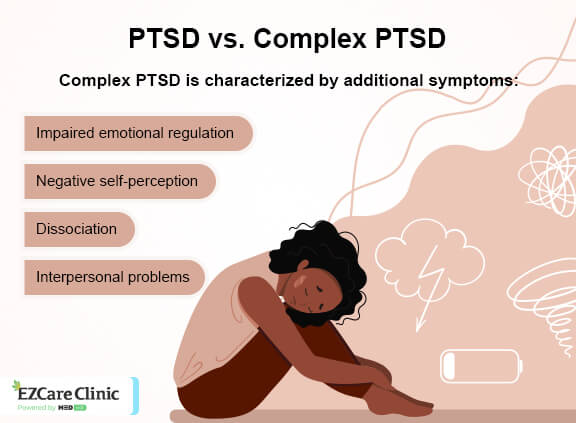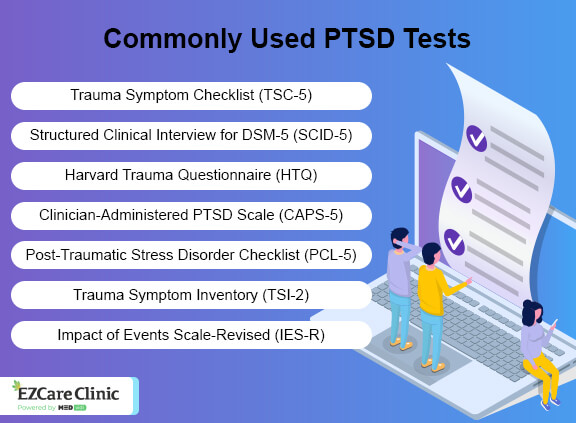Experiencing traumatic, distressing, and frightening events may lead to having a mental health disorder called post-traumatic stress disorder (PTSD). If traumatic events were complex, prolonged, or repetitive, people with PTSD may develop complex PTSD or CPTSD. It can occur after a person has experienced physical or sexual abuse, war, or natural disasters. CPTSD can cause a range of symptoms, including intrusive memories, depression, anxiety, feelings of detachment, difficulty regulating emotions and maintaining relationships, and changes in self-perception.
In case you are worried that you may have CPTSD, it is important to get a diagnosis from a qualified mental health professional. A thorough assessment is the best way to determine if you have CPTSD. However, before an appointment, you can start by taking a test for complex PTSD. It can give you an indication of whether or not you may have the disorder.
Take a complex PTSD test and turn to a professional to get rid of your symptoms.
Complex PTSD Symptoms Tests
Complex PTSD is one of the most difficult mental illnesses to accurately diagnose, as it is often difficult to distinguish from other forms of traumatization and anxiety. Taking a complex PTSD test online can provide an individual with a comprehensive initial evaluation of their condition from the comfort of their own home.
The most commonly used complex trauma tests and screenings are:
1.
2.

3.
4. The Clinician-Administered PTSD Scale (CAPS-5). It is an important PTSD test in diagnosing symptoms of complex PTSD, as it assesses a wide range of symptomatology and psychosocial functioning. CAPS-5 is specifically designed to evaluate the presence, severity, and chronicity of a patient’s PTSD symptoms, including dissociation, avoidance, intrusive memories, emotional numbing, sleep disturbances, and other signs of PTSD that can be indicative of complex PTSD. Additionally, CAPS-5 can measure the impact of the disorder on a person’s functioning and how long it has been present. With its versatility and accuracy in assessing the presence and intensity of PTSD-related issues, CAPS-5 can provide a broad and detailed picture of a patient’s PTSD symptoms, helping clinicians to make an accurate diagnosis and subsequently develop an effective treatment plan.
Have a qualified medical doctor screen your mental health to prescribe the appropriate treatment.
5. The Post-Traumatic Stress Disorder Checklist (PCL-5). It is used to identify symptoms of complex PTSD in individuals according to the diagnostic criteria outlined in DSM-5. This 20-item complex PTSD quiz assesses an individual’s difficulty in various areas of functioning such as emotional numbing, intrusive memories, avoidance, and hyper arousal. The PCL-5 is an important diagnostic tool not only for PTSD but also for those who may have symptoms that are associated with other conditions but appear to stem from a traumatic event. As the PCL-5 has been designed to include items that identify more complex reactions to traumatic events, it helps assess the full range of symptoms often seen in complex PTSD.
6.

7.
Bottom Line
Because complex PTSD can be difficult to diagnose and has overlapping symptoms with other disorders, a combination of tests, assessments, and interviews are often used to diagnose it by mental health professionals.
Symptom examination and getting a diagnosis are necessary to get the most suitable and effective treatment. Consult a professional at the MEDvidi to get a personalized treatment plan and medications that will help you overcome your complex PTSD symptoms.













